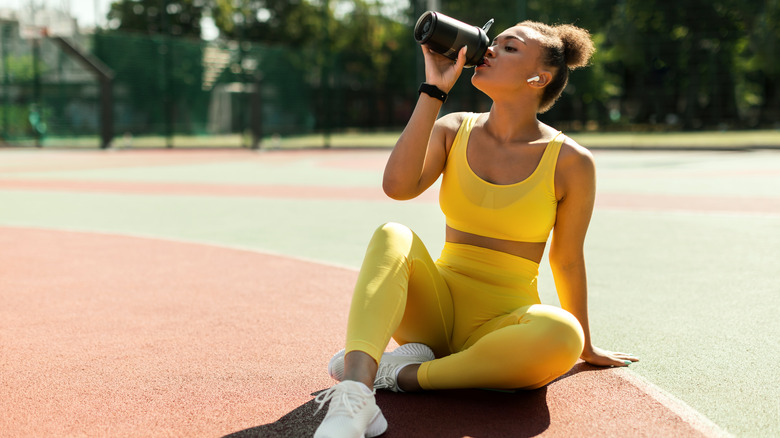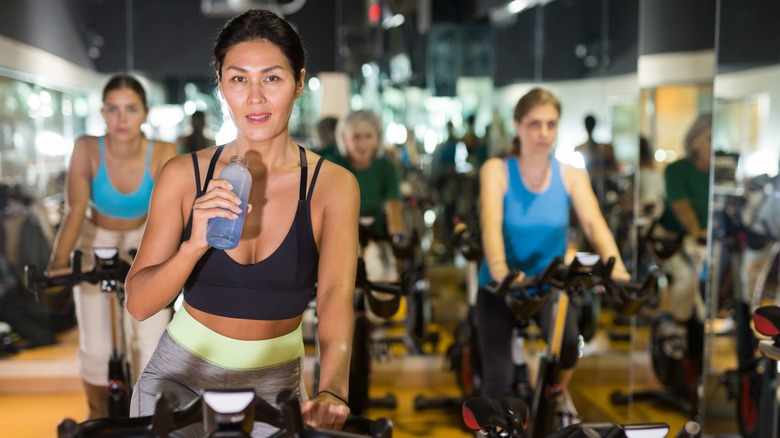Hydration Station: How Much Water Do You Really Need When Working Out?
Drinking water is vital to our health and well-being. Here's the truth about how much water you should drink every day. Without drinking enough water per day, you might experience a range of unpleasant symptoms like irritability, trouble concentrating, and constipation. If you're dehydrated long enough, you might develop kidney stones. If you have trouble remembering to get enough water during the day, there are a couple of tricks to help you. If you like to start your day with coffee or tea, drink a full glass of water first. There are benefits of drinking water as soon as you wake up in the morning – like increasing your metabolism and preventing wrinkles. Add lemon juice or lime juice to your water to give it more flavor without any of the extra sugar.
Continuing to hydrate throughout our day is a must since we lose water when we breathe, go to the bathroom, and sweat. That last one is particularly important to consider when it comes to working out. Hydration is key when exercising. Here's what you need to do to make sure you're getting enough water as you work out.
Start your workout hydrated and replace water lost as you go
Working out helps make your body stronger and healthier. If you're properly hydrated, your body will be able to move more smoothly, as your joints need water for lubrication (via Kaiser Permanente). Proper hydration also helps you recover quickly from workouts and prevent cramps amidst activities. Ideally, you should go into your workout hydrated. If you're not sure, take a look at your pee. If it's pale yellow, you're hydrated. The darker it looks, the more likely you're dehydrated.
For optimal workout performance, the American Council on Exercise recommends drinking about a cup of fluids for every 10 to 20 minutes of exercise to help replace the fluid you're losing. Unless you're doing high-intensity activity for an hour or more, you're fine to use regular water to effectively hydrate, per Scripps. It's equally important to hydrate before, during, and after exercise. You can weigh yourself before and after a workout to see how much water weight you've lost through sweat and respiration. However, keep in mind that frequent weigh-ins can become a fixation for some, so skip that step if it triggers any feeling of discomfort in your body. If you do find out your water weight loss number, the American Council on Exercise recommends drinking between 16 and 24 ounces per pound lost within a couple of hours post-exercise.
It's possible to drink too much water as you work out
It's essential to realize that not everyone has the same hydration needs. How much water you should drink daily depends on several factors like the climate you're in or if you're pregnant, so don't automatically follow others' hydration patterns. Exercise types require differing hydration as well. Doing a relaxed yoga class in a cool room will require you to drink less water compared to a high-intensity spin class in a hot room. Adapt your water needs to your lifestyle.
While dehydration isn't good for your body, neither is the rarer condition of overhydration. When you sweat, you also lose salt and minerals. When exercise is intense and goes on longer than an hour, particularly if you're in a hot environment, supplement your water intake with a form of electrolytes. You can purchase gummies, gels, or electrolyte-infused water. If you're consuming water alone when exercising for a long time, salt and potassium levels in your body plummet: This can cause some serious health problems (via Merck Manual).


